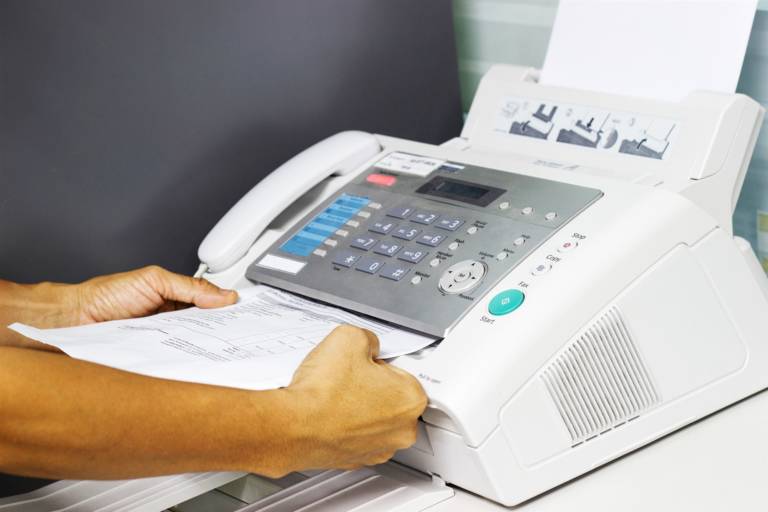
Fax in 2025: How cloudification is revolutionizing financial services
Digital transformation is causing the financial services industry major problems when it comes to how highly sensitive, time-critical information in transmitted. Adding to these challenges are the radical changes in customer expectations in recent years, as digital communications have taken hold in nearly every aspect of consumers’ lives.
To remain viable, outdated communication structures -- particularly those relying on servers and distributed systems -- need to be consolidated and standardized. Few industries are more prepared for this transformation than financial services, where significant investments are already being made to improve operational efficiencies and competitiveness. As some of the world’s largest financial institutions invest in modern technologies like cloud migration and AI, attention is turning to some of their oldest tools that are still in use. Fax is a prime example.

Keep the faith with fax
It’s easy to assume that faxing has no place in today’s digitalized workplace. When email and Instant Messaging apps are so established and familiar, the idea of typing in a fax number, feeding a document into a machine, and then having to wait beside that machine to print out a response for you, sounds, at best, quaint: and at worse, slow, inefficient and unsecure.
But fax has evolved and continues to underpin vital operational processes across a range of sectors. The ongoing importance of timestamping plus the advent of cloud in particular means that whether it’s finance: exchanging the details for buying a house: or sending and receiving critical and confidential healthcare documents, fax still has a significant contribution to make in the day-to-day running of an organization.

Why cloud fax is better for secure data exchange than email
The constantly-evolving email encryption landscape is a tell-tale clue as to email’s vulnerability. Email service providers and encryption software makers must continually up their game because they know organizations use email to transmit their most sensitive content -- a fact that makes a valuable high-priority target for cybercriminals.
Sending a document via email is like writing it on the back of a postcard and popping it into the mailbox, for it to then be read by every single person who handles it on its journey to its destination. When you click "send" on an email it travels through firewalls, ISPs, servers, virus checkers and even data harvesting bots. It is stored, saved, copied and forwarded multiple times without any form of encryption. What this means is that email can very easily be compromised and the important data contained within it can be read and downloaded by unscrupulous third parties.

Navigating the complexities of securely transmitting digital documents
Sending and receiving important, mission-critical, or time-sensitive documents -- whether as an email attachment, via a file-sharing app, or as a digital fax -- is today a critical component of business processes and communication.
Digital documents are now a primary form of business communication, and everything from contracts to proposals and RFQs should be considered data that is governed by compliance and security regulations. Let’s examine the four leading considerations for businesses when it comes to secure digital document transmission.

The fax reborn: How COVID-19 gave new life to an unlikely technology
With stay at home orders and the sudden need to securely share sensitive documents from employee’s homes, there has been a significant demand for a surprising technology: the digital fax. Despite industry-wide efforts to digitally transform, the physical fax is still a very common and necessary piece of technology for many organizations.
In fact, 89 percent of small to medium-sized businesses still use faxes in one form or the other, and faxing still dominates communication in several fields. For example, faxing accounts for 79 percent of all communication in the medical industry. These same organizations have been scrambling to support the abrupt shift to remote work and have had numerous roadblocks in the process.
